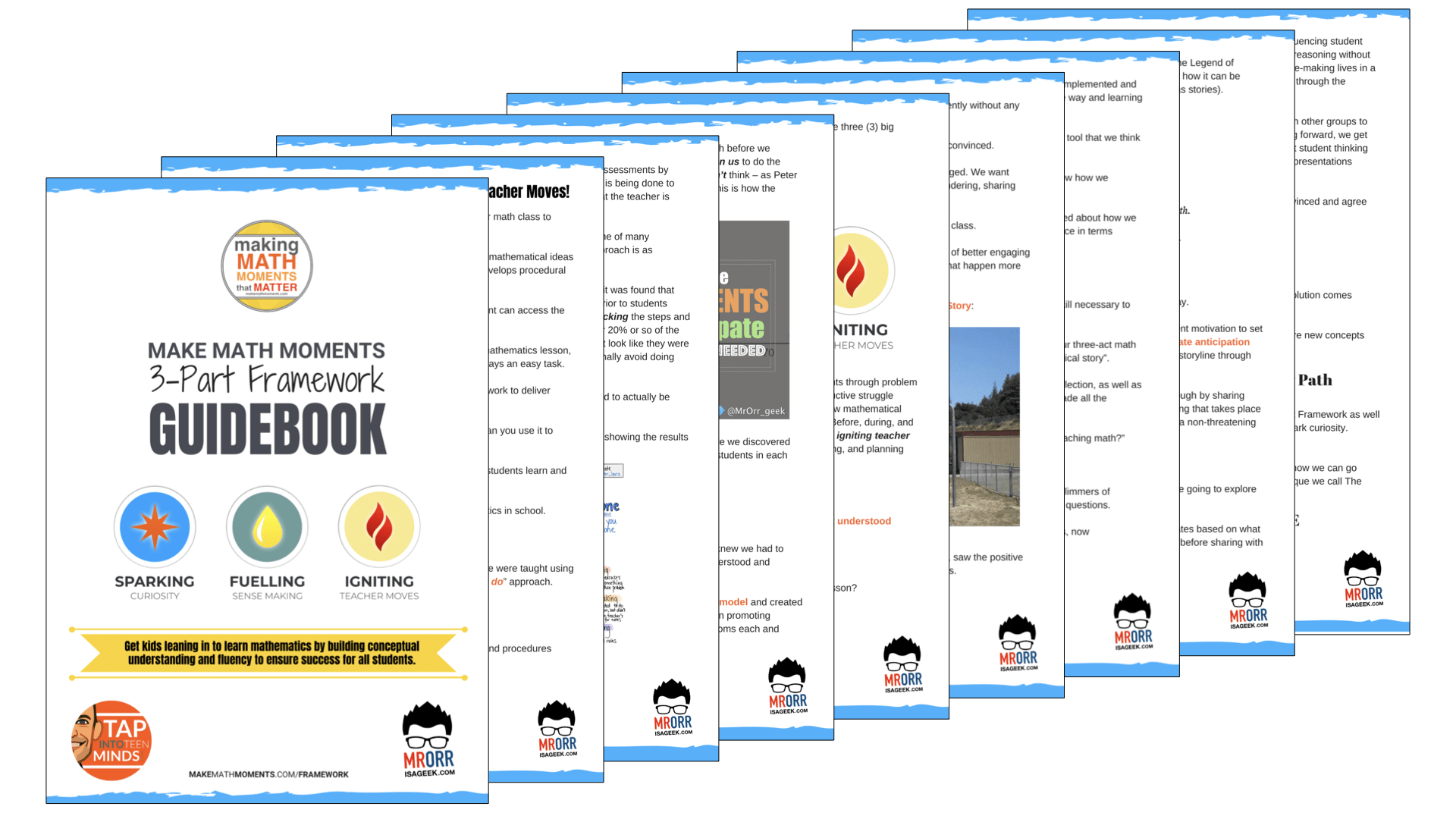How To Teach Ratios Through Division
A Classroom Problem Based Lesson Sneak Peek
Ratios, rates and proportionality are big ideas that explode in the middle grades and are often thought to be the “gatekeepers” for students to either build the understanding necessary to continue on through higher level mathematics courses or to default to math courses that limit future learning pathways.
One of the most upsetting aspects of this roadblock that so many students encounter during their mathematical journey is that most educators teaching these concepts – this includes most high school teachers, too – have an incomplete understanding of the behaviours of ratios, rates and proportionality due to how we were taught.
Rather than trying to oversimplify the idea of a ratio – and in this case, a composed unit ratio – we will use a problem based lesson that begins with partitive division to emerge the idea of composed unit ratios and how we can use scaling in tandem as a means to solve problems within a ratio relationship.
In particular, you’ll learn:
-
How we can leverage context and our prior knowledge of partitive division to emerge the idea of composed unit ratios;
-
How all partitive division problems are a single ratio from an infinite number of equivalent ratios in a ratio relationship;
-
How we can leverage a common number talk strategy called “doubling and halving” to help us solve partitive division (and ratio) problems; and,
-
Where you can go to use a full problem based math lesson related to this context of “Planting Flowers” for extending division to ratios, rates and proportional relationships.
Resources Related To The Video
-
Check out the Planting Flowers [Ratios and Rates] Problem Based Math Unit
-
Learn more about the Progression of Division.
-
Visit Make Math Moments Problem Based Math Lessons page for other useful problem based units
-
Learn about our 3-Part Framework for designing engaging lessons that promote the development of resilient problem solvers.
-
Up your pedagogical and content knowledge game by joining our Make Math Moments Teacher Academy!
Want to Run Problem Based Lessons Without a Hitch In Your Classroom?
DOWNLOAD THE 3-PART FRAMEWORK GUIDEBOOK

Why not bring the 3-Part Framework Guidebook with you?
Download the PDF so you can share with your professional learning network via print or email!
LESSONS TO MAKE MATH MOMENTS
Each lesson consists of:
Each Make Math Moments Problem Based Lesson consists of a Teacher Guide to lead you step-by-step through the planning process to ensure your lesson runs without a hitch!
Each Teacher Guide consists of:
- Intentionality of the lesson;
- A step-by-step walk through of each phase of the lesson;
- Visuals, animations, and videos unpacking big ideas, strategies, and models we intend to emerge during the lesson;
- Sample student approaches to assist in anticipating what your students might do;
- Resources and downloads including Keynote, Powerpoint, Media Files, and Teacher Guide printable PDF; and,
- Much more!
Each Make Math Moments Problem Based Lesson begins with a story, visual, video, or other method to Spark Curiosity through context.
Students will often Notice and Wonder before making an estimate to draw them in and invest in the problem.
After student voice has been heard and acknowledged, we will set students off on a Productive Struggle via a prompt related to the Spark context.
These prompts are given each lesson with the following conditions:
- No calculators are to be used; and,
- Students are to focus on how they can convince their math community that their solution is valid.
Students are left to engage in a productive struggle as the facilitator circulates to observe and engage in conversation as a means of assessing formatively.
The facilitator is instructed through the Teacher Guide on what specific strategies and models could be used to make connections and consolidate the learning from the lesson.
Often times, animations and walk through videos are provided in the Teacher Guide to assist with planning and delivering the consolidation.
A review image, video, or animation is provided as a conclusion to the task from the lesson.
While this might feel like a natural ending to the context students have been exploring, it is just the beginning as we look to leverage this context via extensions and additional lessons to dig deeper.
At the end of each lesson, consolidation prompts and/or extensions are crafted for students to purposefully practice and demonstrate their current understanding.
Facilitators are encouraged to collect these consolidation prompts as a means to engage in the assessment process and inform next moves for instruction.
In multi-day units of study, Math Talks are crafted to help build on the thinking from the previous day and build towards the next step in the developmental progression of the concept(s) we are exploring.
Each Math Talk is constructed as a string of related problems that build with intentionality to emerge specific big ideas, strategies, and mathematical models.
Make Math Moments Problem Based Lessons and Day 1 Teacher Guides are openly available for you to leverage and use with your students without becoming a Make Math Moments Academy Member.
Use our OPEN ACCESS multi-day problem based units!
Make Math Moments Problem Based Lessons and Day 1 Teacher Guides are openly available for you to leverage and use with your students without becoming a Make Math Moments Academy Member.
Partitive Division Resulting in a Fraction
Equivalence and Algebraic Substitution
Represent Categorical Data & Explore Mean
Downloadable resources including blackline masters, handouts, printable Tips Sheets, slide shows, and media files do require a Make Math Moments Academy Membership.
Use our OPEN ACCESS multi-day problem based units!




